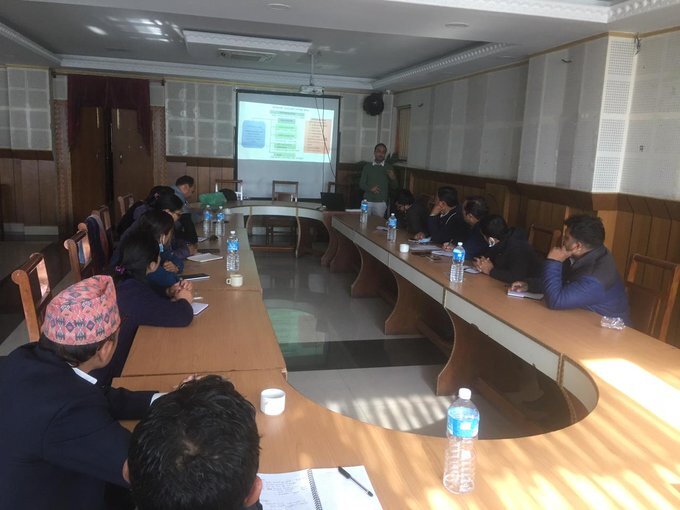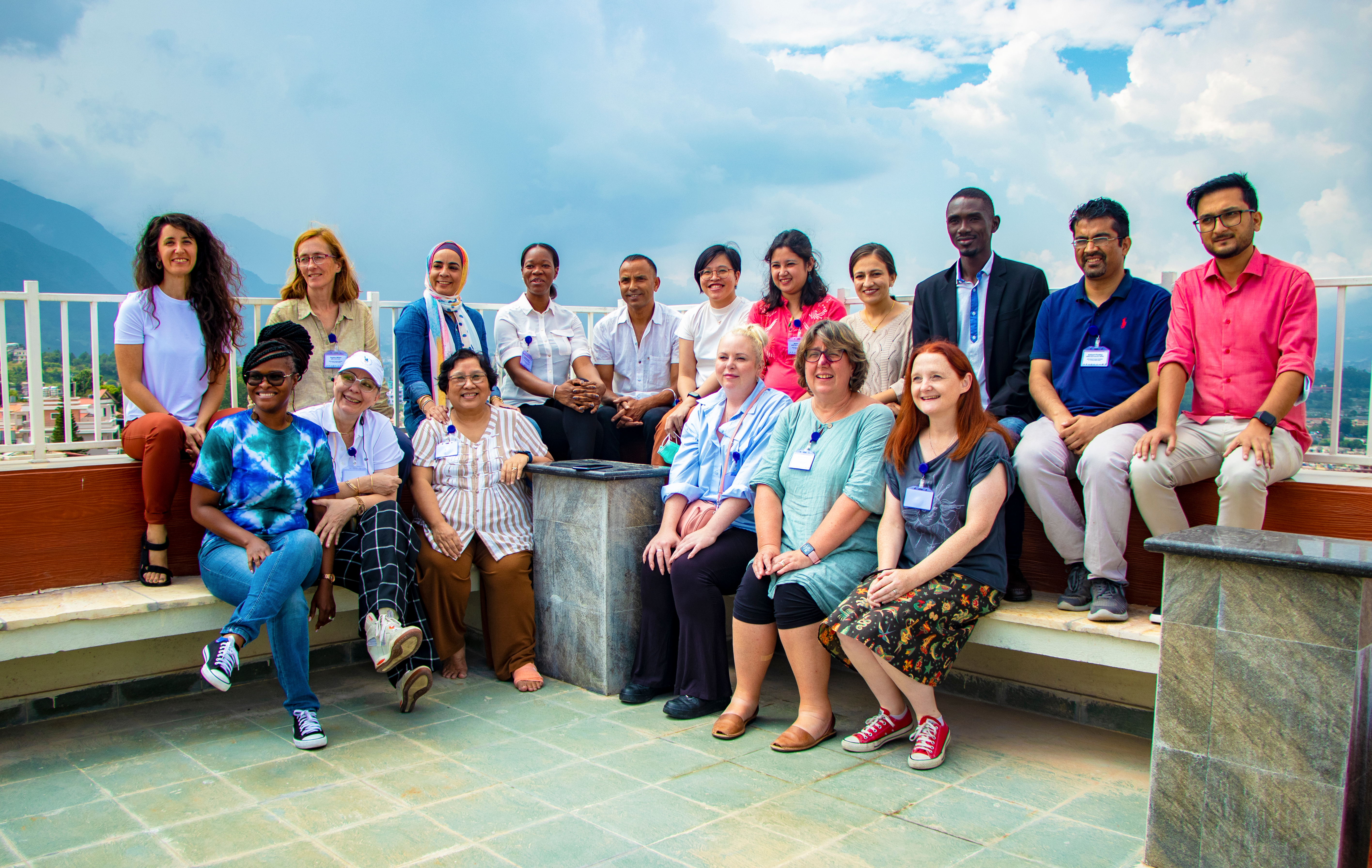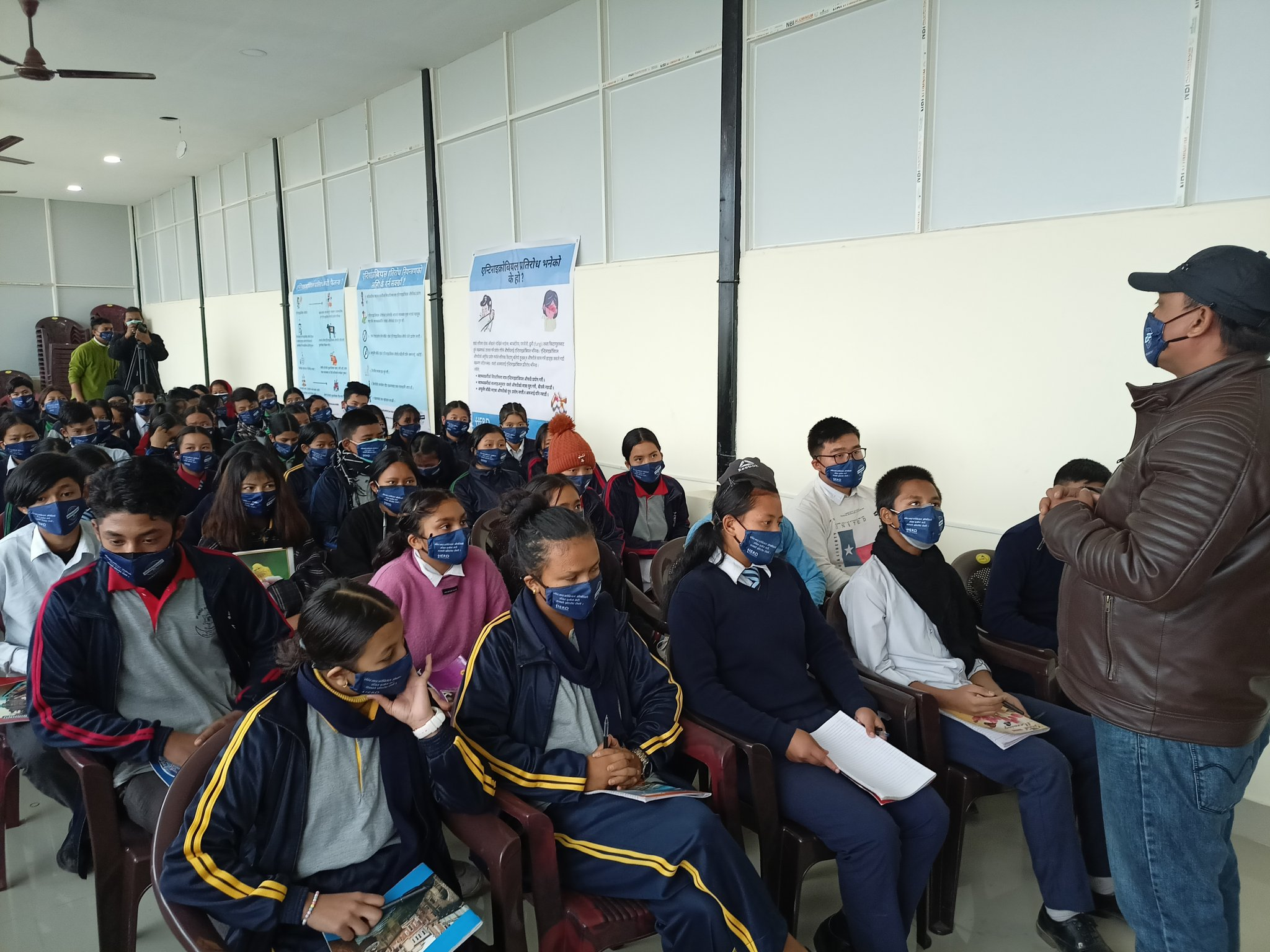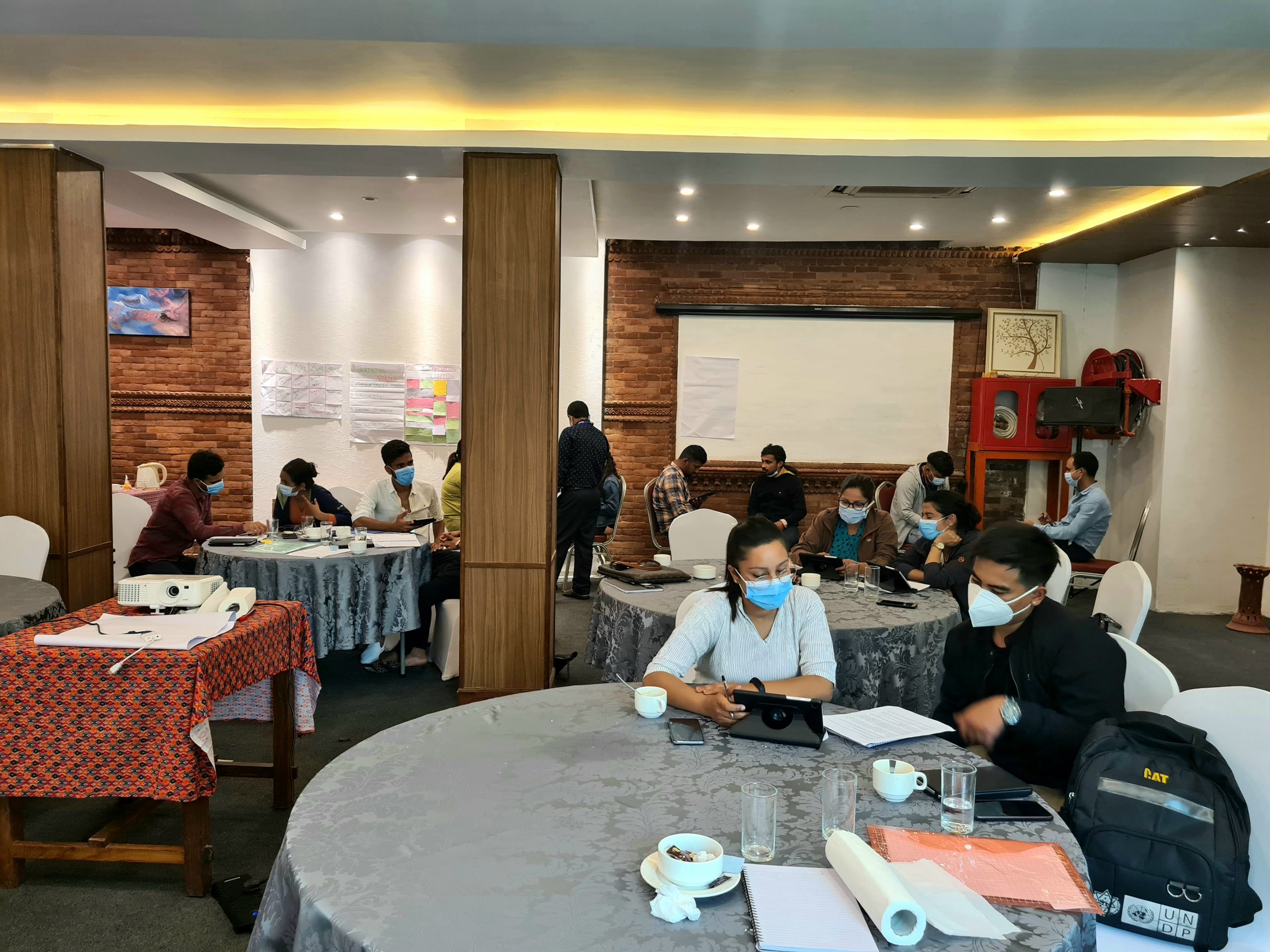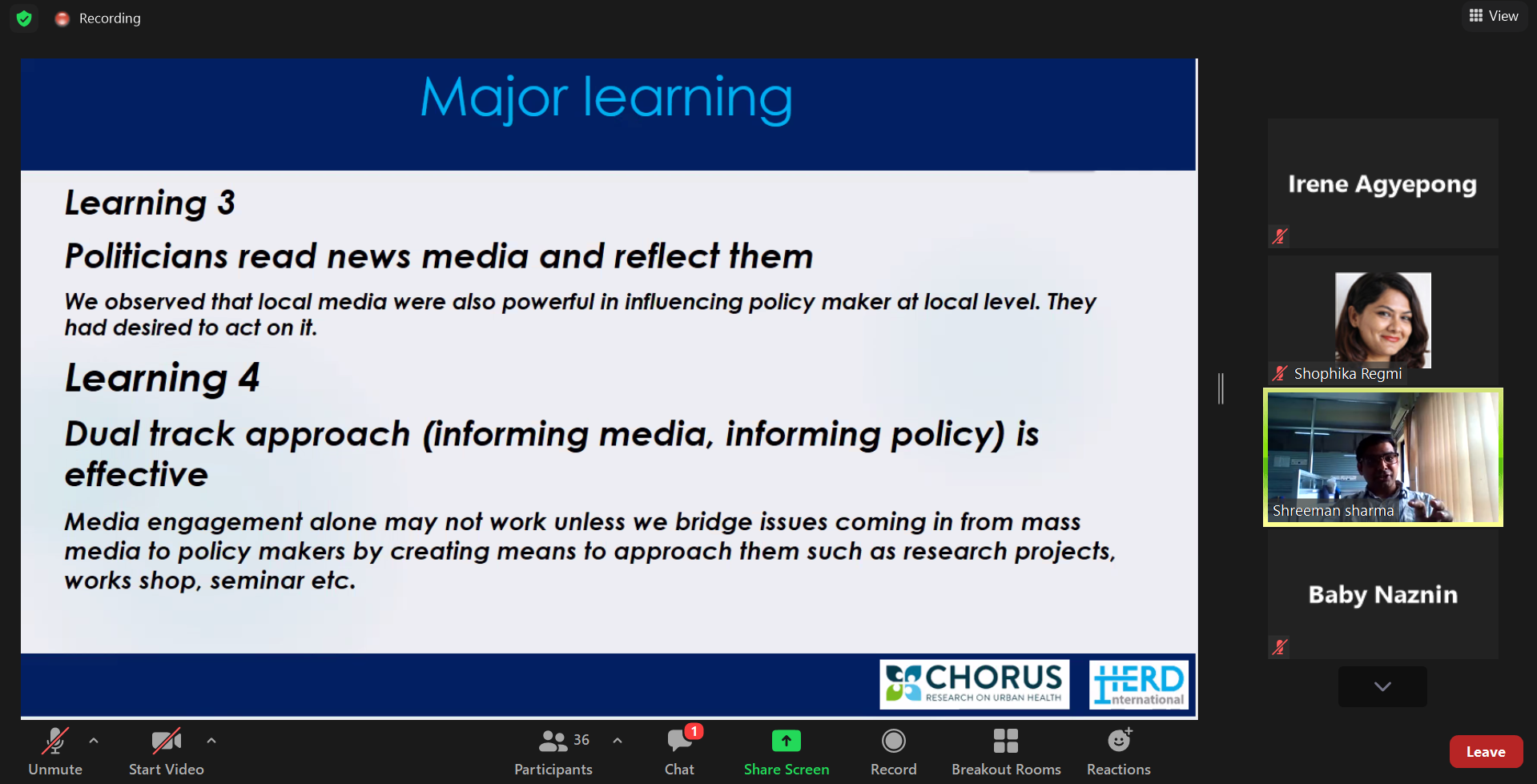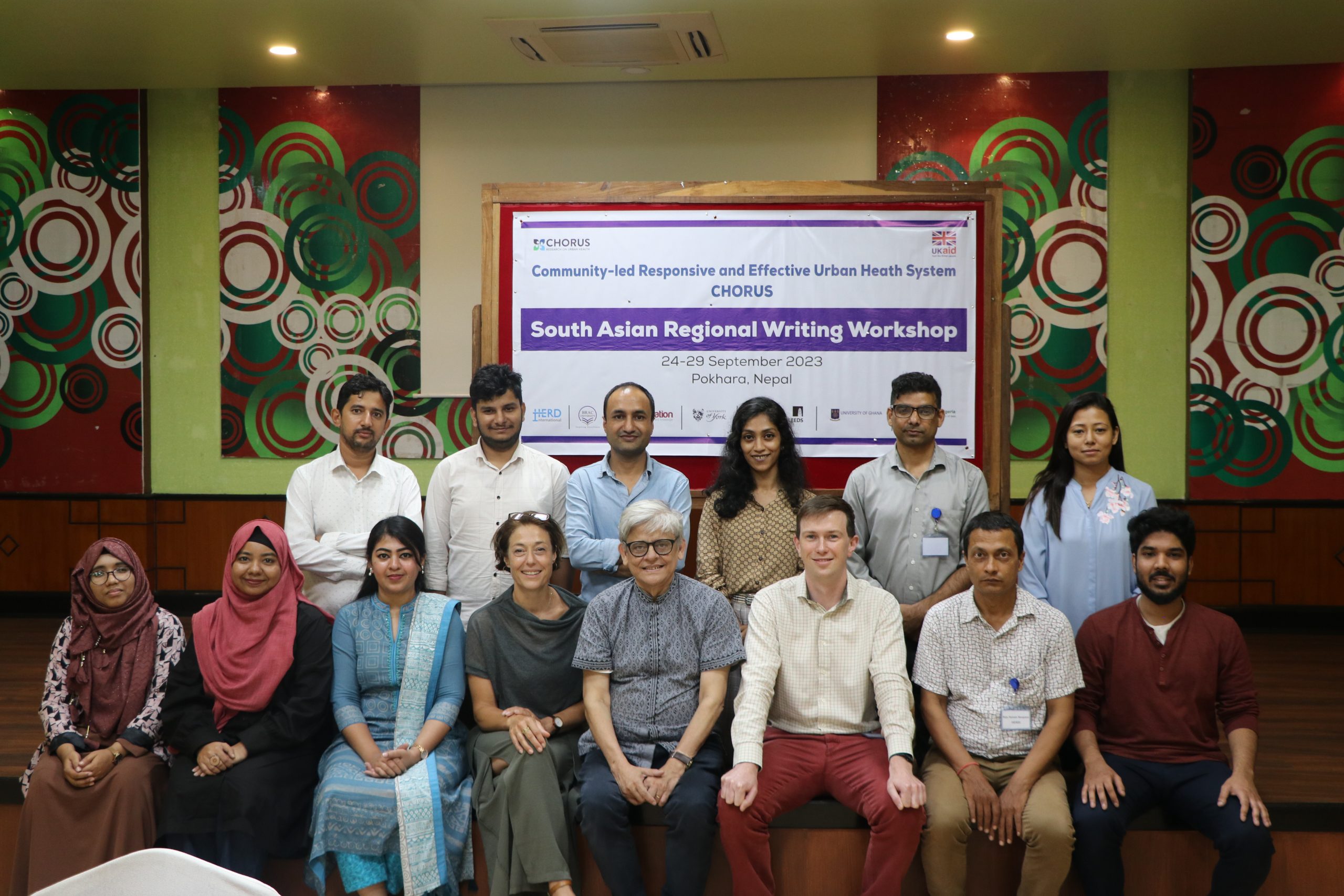The health policy formulation workshop was held in Kapilvastu municipality on 19 May 2024 to identify health needs based on evidence and develop an effective health policy. The workshop attended by key municipal leaders and stakeholders focused on prioritizing health needs, identifying sector gaps, and addressing these in the health policy in-progress, supported by the evidence generated by HERD International and the municipality.
The Local Government Operation Act 2074 (LGOA) grants local governments responsibility for formulating, implementing, and regulating basic health policies. The Kapilvastu municipality, one among 753 municipalities, has already formulated and endorsed Health Act. The municipality, now, is working on overarching health policy to strategize planning and approaches to improve better health outcomes. As HERD International is working with the municipality to strengthen local health system resilience under ReBuild for Resilience Study, it has been providing technical support to facilitate policy drafting process. The policy formulation was prioritized during action plan co-created by the municipality with the technical support from HERD International. HERD International, alongside the Safer Migration (SAMI) Project, which integrated mental health into the broader health policy, supported the municipality technically.
Dr. Sushil Baral, HERD International Director, facilitated a technical session emphasizing the critical role of the new health policy in shaping Kapilvastu Municipality’s future health initiatives. He stressed on the need for deep diving into the current health status and desired outcomes. “The policy should include basic health services and address needs of adolescents, the elderly, mental health, and non-communicable diseases (NCDs),” he said.


The Chief Administrative Officer of the municipality Ganesh Prasad Aryal stated that the draft health policy will be reviewed by the Health Management and Legislative Committees before municipal approval. He was of a view that each ward should take ownership of municipal initiatives for better health outcomes emphasizing need for maintaining proper communication between health facilities and municipality, improved governance and establishing mechanisms to ensure successful policy outcomes.
The municipality faces multiple health challenges, including poor maternal and neonatal health indicators, high prevalence of communicable and non-communicable diseases, food insecurity, climate change impacts, and migration.
The Local Government Institutional Capacity Self-Assessment (LISA) highlighted areas needing improvement, such as in the areas of environmental conservation and disaster response, immunization coverage and institutional delivery.
The workshop categorized health issues under different system pillars, identifying major stressors like a shortage of skilled human resources, inadequate infrastructure, and equipment. Specific concerns included health service delivery at Kapilvastu Hospital, drug availability, mental health services, and delayed dialysis. Participants stressed the need for ownership, prioritization of health by elected representatives, and community awareness to address early marriage, poor sanitation, and waste management.
The ward chairs, officials from different sections of the municipalities and representatives from District Development Committees contributed to enrich the draft of municipal health policy.

